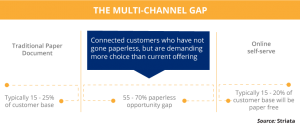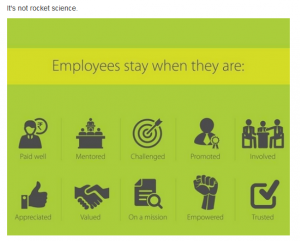
Chargebacks were created to protect customers’ rights, but that doesn’t mean that its main goal is to hurt merchants. Did you know that you, as a merchant, also have chargeback rights?
Card networks, such as Visa and Mastercard, provide rules and regulations that protect you from fraudulent activity, including friendly fraud and chargeback fraud. You can also protect your business from unwarranted returns and dishonest customers.
Merchants’ chargeback rights—what you need to know
Not everyone knows that customers must attempt to dispute the transaction with the merchant before filing a chargeback. When the issuer can’t resolve the issue, they can ask the customer to prove their attempts to reach a resolution with the merchant.
Here are some other things you need to pay attention to for increased protection.
Reason codes
Reason codes are attached to chargeback notifications and provide you with insights into why the chargeback was issued. Customers must give a reason for filing a chargeback, so you will know what you can do and what kind of evidence you need to provide to the issuing bank. It also helps you decide whether investing in a dispute will be worthwhile.
Note that several reason codes require cardholders to contact the merchant before filing a chargeback to resolve the issue.
Late delivery returns
If an item is delivered after the agreed delivery date, the customer must return the merchandise before filing a chargeback. Such a solution protects merchants from losses resulting from errors caused by the delivery company.
Purchase price only
Customers are limited in their chargeback amounts. When a cardholder issues a chargeback, it can be done for the full amount of the transaction or a partial amount, but the total amount of the chargeback can never exceed the original transaction amount. Whether it’s a one-time chargeback or partial chargebacks added together, they can’t exceed the original transaction amount.
However, there might be an exception to this if the transaction was made in foreign currency, and the exchange rate has changed since the purchase was made.
15-day waiting period on returns
Issuers need to wait 15 calendar days from the time the customer returned an item before approving a chargeback. The exception is when the 15-days period will exceed the chargeback filing deadline. This window gives merchants more time to file a refund and avoid the chargeback issue.
Note that merchants can request product returns when customers initiate a refund or a credit card chargeback.
No cashback transactions
Another thing you should be aware of is that chargebacks can’t be filed for a cashback amount received from a debit card transaction.
The right of representment process
Contesting a chargeback is one of, if not the most, important chargeback merchant rights. You have the right to fight chargebacks, and you need to respond to them formally. If you work with a reliable payment processor, it probably provides tools to get you through the dispute process smoothly. You’ll need to fill out a form in your merchant dashboard and submit it by a specific deadline.
Gather as much evidence as possible. Make sure you collect specific information and keep transaction records—everything that could help you win the dispute.
Keep in mind that disputing a chargeback may require a high investment of resources, which may be unprofitable. That is why it is a good idea to determine a minimum transaction value that would be worthwhile to dispute.
Chargeback arbitration
When the issuer’s decision is made in favor of the customer, the bank files a pre-arbitration chargeback to the merchant. You can then decide whether you want to accept the decision or appeal to the card network to review the case.
Before deciding to appeal a decision, do a cost-benefit analysis. It might be more costly to appeal than to refund the transaction. Think twice, especially when you want to request pre-arbitration (reintroduce the chargeback). If the cost of the process exceeds the purchase value, then it isn’t a good idea. The pre-arbitration process should be reserved for high-value transactions.
Wrapping up
Merchant chargeback rights can help you save your business from severe losses. It’s important to understand your rights and responsibilities so that you can send a strong message to fraudsters and credit card issuers that you won’t accept suspicious activity and that you’re ready to fight.
Include a top-notch fraud prevention strategy in your everyday activities. Make sure the payment processor you work with provides anti-fraud tools with machine learning, AI-based solutions, and an efficient chargeback disputing mechanism. According to Chargebacks911 and CNP, companies that use third-party chargeback management solutions can reduce chargebacks by 19%.
Maintaining high-quality customer service and a strong refund policy are also helpful. Always try to talk to your customers first to avoid having to fight chargebacks. If your discussion isn’t successful, weigh the pros and cons before taking additional steps.
Business & Finance Articles on Business 2 Community
(42)
Report Post








